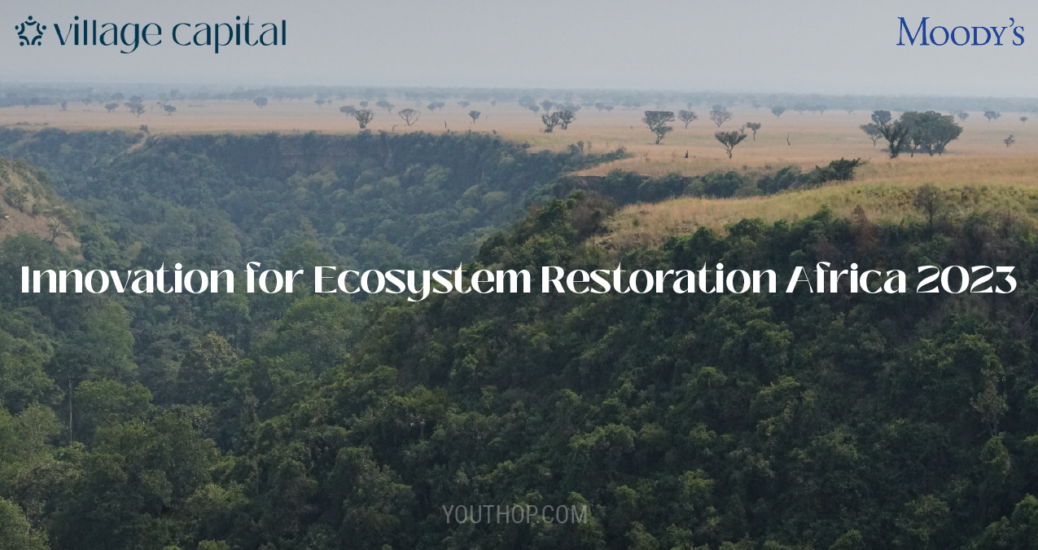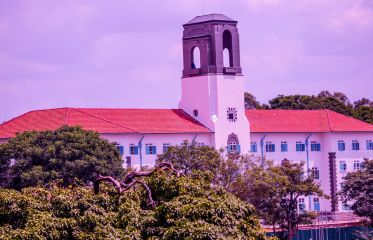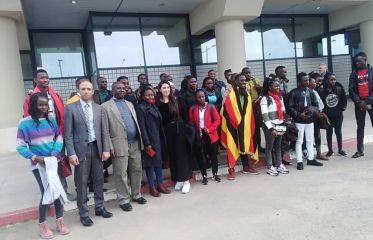Breaking News
- Flexible Remote Work Opportunity for University Students: Earn $100–$250 Per Month ...Read More
- Ministry of Education and Sports Azerbaijan Government Scholarships For 2025-2026 Academic Year ...Read More
- Government Sponsorship Undergraduate Admission Lists 2025-26 for Makerere University ...Read More
- Ministry of Education And Sports: Egyptian Government Scholarships 2025-2026 Academic Year ...Read More
- Ground Breaker Full Scholarship for girls to study Software Engineering 2025 July Intake ...Read More
- Tony Elumelu Foundation Entrepreneurship Programme (TEEP) 2025 for young African Entrepreneurs ...Read More
- DESIGNING FUTURES 2050 International Design Competition 2025 (€15,000 prize) ...Read More
- Ground Breaker Full time Scholarship for girls to study Software Engineering 2025 Intake ...Read More
- Ministry of Education And Sports Algerian Vocational Training Scholarships for 2024-2025 AY ...Read More
- Ministry of Education and Sports Advert for the Algerian Government Scholarships for 2024-2025 ...Read More
Innovation for Ecosystem Restoration: Africa 2023

Deadline May 14th 2023
The Innovation for Ecosystem Restoration Africa 2023, supported by Moody's Corporation, is an accelerator program that will support entrepreneurs promoting ecosystem restoration by addressing deforestation, land degradation, water scarcity, loss of biodiversity, and adverse climate change, which have emerged as some of the most pressing challenges facing sub-Saharan Africa.
Village Capital, with the support of Moody’s Foundation, will support 10-12 impact-driven startups building locally viable ecosystem restoration solutions in Africa.
The Innovation for Ecosystem Restoration program will address some of the most pressing and complex challenges facing ecosystem restoration entrepreneurs in sub-Saharan Africa. Our goal is to deliver an accelerator for entrepreneurs championing ecosystem restoration throughout sub-Saharan Africa.
Ecosystem Degradation
Despite sub-Saharan Africa being home to some of the world’s most biologically diverse ecosystems, ecosystem degradation remains to be a significant environmental problem in the region owing to natural and human-induced disturbances.
Deforestation, land degradation, water scarcity, loss of biodiversity, and adverse climate change have emerged as some of the most pressing challenges facing the region which have a far-reaching impact on ecological, economic, and social systems.
Approximately 3.94 million hectares of forests are lost annually in sub-Saharan Africa due to population growth, agricultural expansion, infrastructure development, and illegal logging, while desertification affects around 45% of Africa’s land area. Over 65% of the land in Africa is affected by degradation impacting 40% of the population and 80% of agricultural land affected by depletion of soil nutrients.
Startups help play a role in alleviating ecosystem degradation challenges given that they employ nearly 45% of the population and generate nearly 33% of GDP in developing countries.
Who Should Apply
Reforestation
We're looking for solutions that engage in reforestation activities such as planting trees and other vegetation in degraded areas to restore their ecological state and provide habitat for wildlife.
Regenerative agriculture, Soil conservation, biodiversity conservation
We're recruiting solutions that help restore soil health and promote biodiversity such as terracing, crop rotation, cover cropping to restore soil fertility and reduce soil erosion.
Wetland restoration and water conservation
We're on the look out for solutions that restore wetland ecosystems such as providing water filtration, restoring water flows, planting native vegetation and carbon sequestration services to improve the quality of water and biodiversity
Sustainable land use practices and sustainable agriculture
We're looking for solutions that engage in sustainable land use practices including rotational grazing, conservation agriculture, integrated pest management, and agroforestry.
Climate tech
We're looking for companies that use technology to develop solutions to address climate change and promote sustainability. Climate tech solutions include solutions that reduce greenhouse gas emissions, increase energy efficiency and promote renewable energy.
Eligibility
We are looking for (for-profit) startups building locally viable ecosystem restoration solutions. Eligibility requirements include:
-
Must be a for-profit entity and have legal incorporation and operations in at least one sub-Saharan African country.
-
Have a market-based solution that tackles ecosystem restoration challenges in sub-Saharan Africa.
-
Have at least a minimum viable product (MVP), some traction under their belt, and raised less than $1M in equity.
-
Have meaningful customer or business validation (not limited to revenue, it can also be successful pilot studies, number of users, and/or strategic partnerships).
-
Have at least one full-time founder based in sub-Saharan Africa.
Benefits
Training and Continued Learning: Access to live and asynchronous sessions tailored to a virtual learning environment to help their companies identify early milestones and prepare for their next round of capital (if relevant) or big expansion.
Networking: Startups will connect with a diverse and inclusive network of mentors, founders, and investors.
Mentorship: Ability to meet with and receive mentorship from prominent investors, potential strategic partners and customers, and other founders.
Advice: Startups will participate in a virtual investor forum and mock board meetings with representatives from financial institutions, corporates, experienced entrepreneurs, and investors that can help their company scale
Financial Analysis: Access to an investment analyst who will coach you one on one on building a financial model, identifying unit economics, and using financial metrics to drive both the business and investor diligence
Exposure: Get featured on Village Capital’s program website and other collateral.
Register Here >>>
Top Courses Currently Admitting
-
Certificate in Video Production
Esom School of Music
-
Bachelor Of Tourism & Hospitality Management
Uganda Christian University
-
Bachelor of Business Administration in Marketing
Bugema University
-
Diploma in Information and Communication Technology
Hope Vocational And Technical Institute
-
Bachelor of Science in Software Engineering
International University of East Africa






























